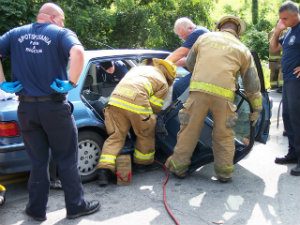
Post-traumatic stress disorder (PTSD) is a type of mental health disorder caused by experiencing or witnessing a traumatic event, such as a severe car accident. In fact, car accidents are one of the leading causes of PTSD among the general non-military population and 9% of car accident survivors develop PTSD.
Car accident trauma can be debilitating both physically and mentally. Where PTSD is concerned, certain situations, sights, or sounds can act as triggers, making you relive the stress, fear and emotions felt when the incident occurred all over again.
The American Psychiatric Association (APA) defines post-traumatic stress disorder as “a psychiatric disorder that may occur in people who have experienced or witnessed a traumatic event.”
Individuals who experience a serious motor vehicle accident are at increased risk for psychological problems, particularly Post-traumatic Stress Disorder.
Accident severity, fatalities and severe injuries contribute to the potential for development of PTSD.
 PTSD Triggers from a Car Accident
PTSD Triggers from a Car AccidentThe effects of PTSD after a car accident are different for everyone. Some may have panic attacks when engaging in driving-related activities. Other triggers may relate to the sights, sounds, and smells that occurred at the time of the accident.
Common triggers of PTSD symptoms after a car accident might be:

Car accidents are one of the most common types of single-event trauma that causes PTSD. Some of the symptoms associated with the condition can include:
Living with PTSD and other psychological injuries after a car accident can be difficult. Loud noises (at home, work or in social situations) could result in debilitating fear or panic attacks. Flashbacks and nightmares can plague you resulting in panic and the feeling it is happening again. You might be too frightened to drive or ride in a car. And, PTSD symptoms may not show for weeks or months following the crash.
Knowing more about PTSD can help you determine if you might have PTSD after a car accident

If you have questions about a PTSD injury claim, talk to an attorney who can evaluate your claim and explain your legal options. Call Nash & Franciskato at (877) 284-6600. One of our experienced staff will speak with you personally and will provide you with a free, no-obligation review of your case.
START YOUR FREE CASE REVIEW TODAY
If you would like to receive news and blog updates on a regular basis, sign up to receive our email newsletter. Your email address will only be used to send you our newsletter and respond to inquiries.
Past results afford no guarantee of future results and each case is different and is judged on its own merits. The choice of a lawyer is an important decision and should not be based solely upon advertisements